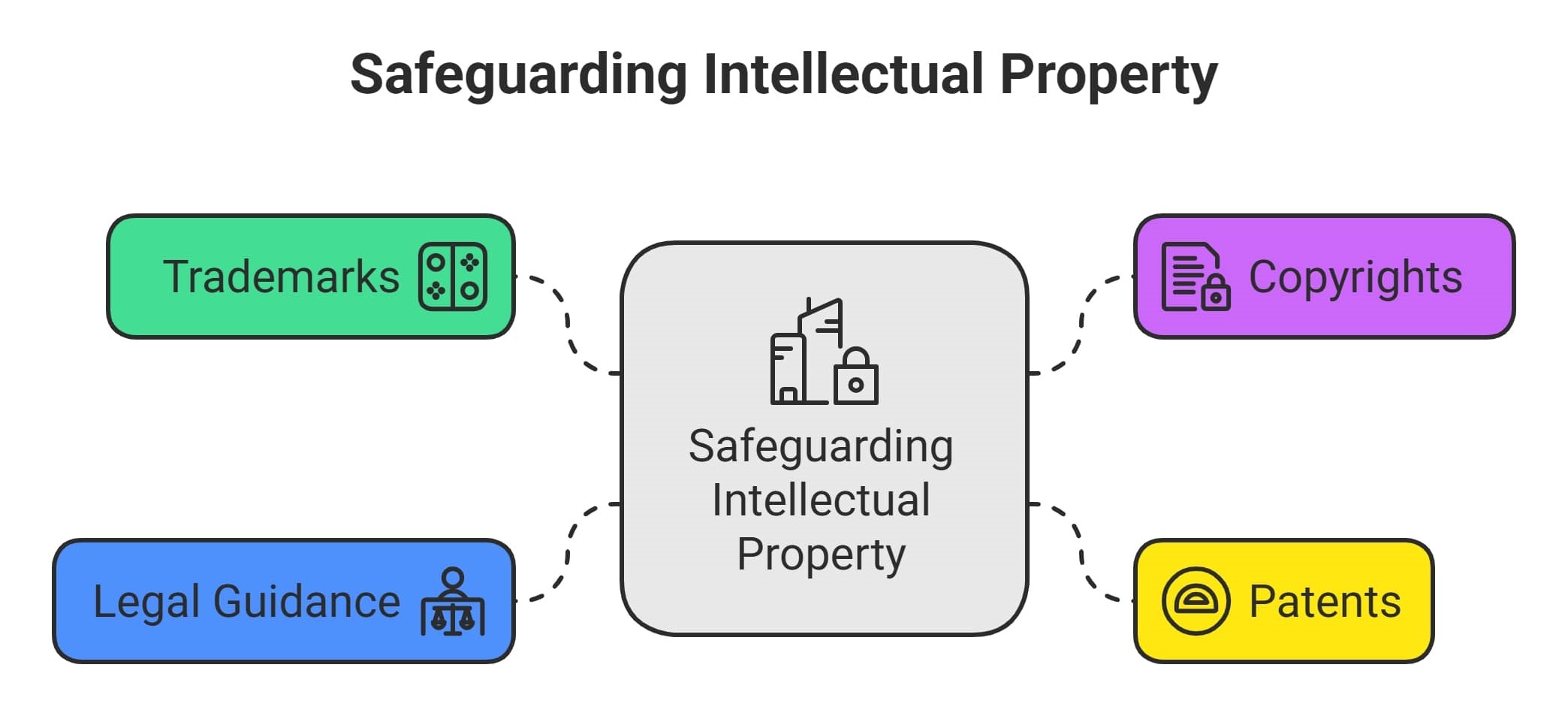Running a small business in Canada is a rewarding yet complex endeavor. For business owners, staying legally protected is critical to safeguarding business assets and achieving business goals. Legal issues can emerge unexpectedly, but proactive legal strategies ensure compliance with legal requirements and long-term success. This guide outlines essential steps to keep your business legally sound.
1. Choose the Right Business Structure
Selecting the appropriate business structure is a foundational step for legal protection. Common business structures in Canada include sole proprietorships, partnerships, and corporations, each with distinct legal and financial implications.
Sole Proprietorship: The simplest structure, it offers full control but exposes business owners to personal liability, risking personal assets like homes or savings in case of business debts or lawsuits. Liability insurance can mitigate these business risks.
Partnership: Partnerships share responsibilities and profits but maintain personal liability. A partnership agreement is crucial to define roles and exit strategies, protecting business relationships.
Corporation: Incorporating creates a legal entity, offering limited liability protection by separating business debts from personal assets. While it involves higher ongoing costs and compliance requirements, it’s ideal for businesses seeking a competitive advantage. To ensure your corporation remains legally protected, learn more about How to Properly Maintain Corporate Records for Legal Protection.
Example: A tech startup may incorporate to shield founders from liability and attract angel investors.
2. Register Your Business and Obtain Necessary Permits
Business name registration is a legal requirement to operate under a trade name. Depending on your type of business, registration occurs at federal, provincial, or municipal levels, ensuring your legal status.
Permits and licenses vary by industry. Restaurants require health permits, while retail stores need municipal business licenses. Tools like BizPaL, provided by the Canadian government, help identify necessary permits for your business activities.
Tip: Verify provincial governments’ requirements to ensure full compliance for your business operations.
3. Draft and Use Clear Contracts
Clear contracts are vital for protecting business transactions. Whether with clients, suppliers, or employees, contracts outline terms like payment schedules, deliverables, and dispute resolution mechanisms, preventing legal disputes.
Client and Supplier Contracts: Specify scope, payment terms, and intellectual property ownership to avoid conflicts.
Example: A marketing agency’s contract should detail services, payment schedules, and ownership of creative work.
Employment Contracts: Define roles, compensation, and termination terms, ensuring compliance with employment standards on minimum wage and working hours.
Tip: Consult a legal professional to ensure contracts meet provincial regulations.
4. Protect Your Intellectual Property

Trademarks: Protect brand names or logos, granting exclusive rights.
Example: A fashion brand’s trademarked logo prevents competitors from using similar designs.
Copyrights: Secure original works like software or marketing content.
Patents: Protect innovative products or technologies.
Tip: A legal professional can guide your intellectual property registration process.
5. Comply with Tax Laws and Regulations
Tax compliance is critical to avoid penalties. Business owners must manage business tax obligations, including GST/HST for businesses with taxable income over $30,000 annually, and corporate taxes for incorporated entities.
Accurate financial records are essential for tax returns. Working with a financial professional maximizes deductions and ensures adherence to Canada Revenue Agency (CRA) regulations.
Tip: Incorporate tax planning into your business strategy to optimize financial goals.
6. Get Business Insurance
Business insurance mitigates business risks, protecting against legal claims or losses. Key types include:
General Liability Insurance: Covers injuries or property damage from business activities.
Professional Liability Insurance: Protects service providers from negligence claims.
Property Insurance: Safeguards equipment and inventory.
Tip: Consult an insurance company to tailor coverage to your business’s needs.
7. Stay Up-to-Date with Legal Changes
Evolving legal structures require vigilance. Changes in tax laws, employment standards, or industry regulations impact compliance.
Industry Associations: Provide updates on relevant laws.
Legal Counsel: Regular consultations with a legal professional keep contracts and policies current.
Tip: Leverage business resources like legal newsletters for ongoing compliance.
Conclusion
Legal protection is a cornerstone for Canadian business owners, ensuring business assets and business goals are secure. By selecting the right corporate structure, registering your business, drafting robust contracts, protecting intellectual property, and maintaining compliance with tax and employment laws, you mitigate business risks. Business insurance and legal counsel further strengthen your position. At Cloudhaus Law, we offer expert legal advice to help small businesses thrive. Contact us today to safeguard your business with confidence.








